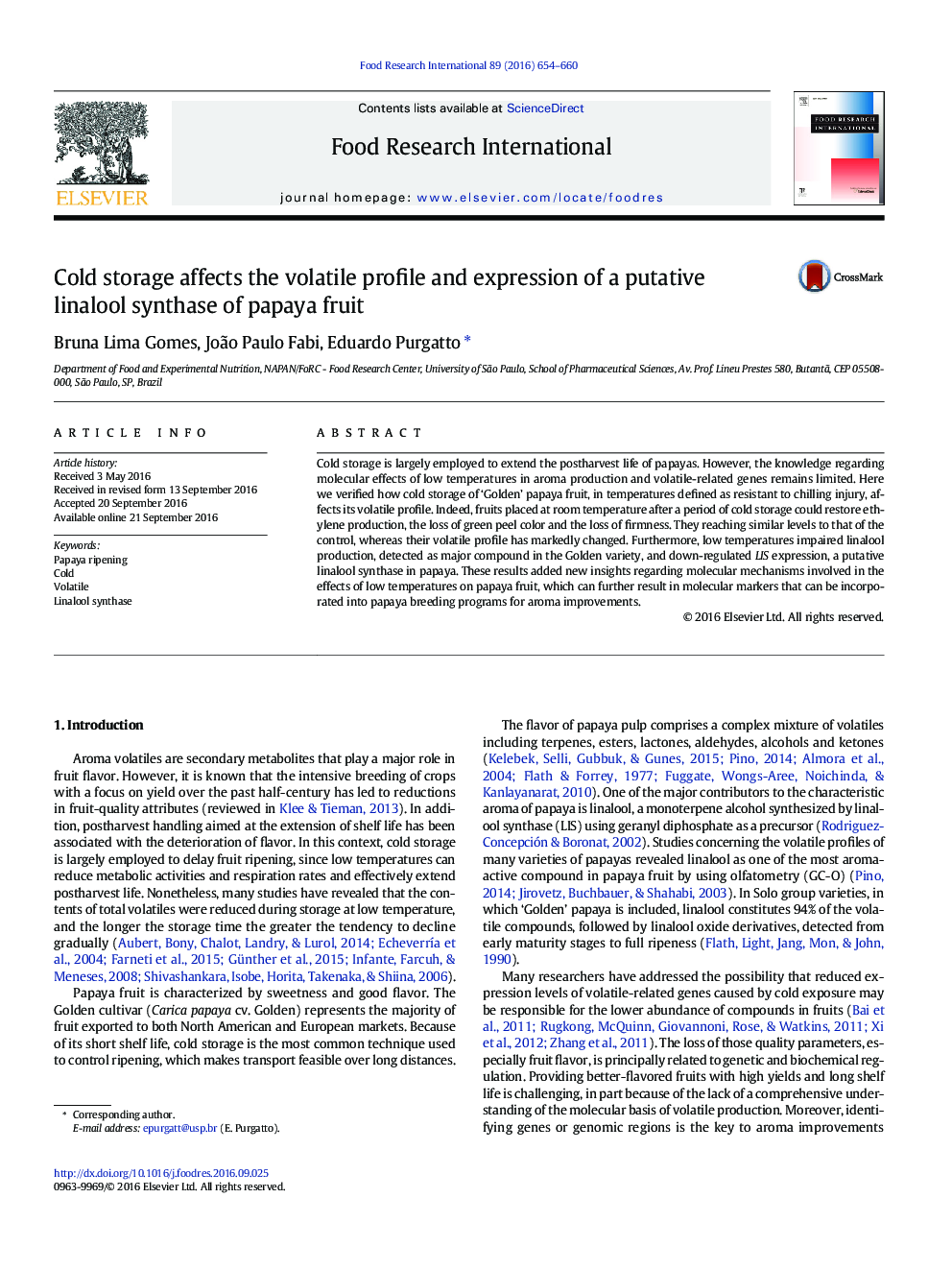| Article ID | Journal | Published Year | Pages | File Type |
|---|---|---|---|---|
| 6394886 | Food Research International | 2016 | 7 Pages |
â¢Cold storage of 'Golden' papaya fruit followed by rewarming was effective in delaying ripening.â¢No chilling injury symptoms was observed whereas the volatile profile was markedly affected in the ripe fruit.â¢Changes in the volatile profile can be associated to down-regulation of volatile-related genes.
Cold storage is largely employed to extend the postharvest life of papayas. However, the knowledge regarding molecular effects of low temperatures in aroma production and volatile-related genes remains limited. Here we verified how cold storage of 'Golden' papaya fruit, in temperatures defined as resistant to chilling injury, affects its volatile profile. Indeed, fruits placed at room temperature after a period of cold storage could restore ethylene production, the loss of green peel color and the loss of firmness. They reaching similar levels to that of the control, whereas their volatile profile has markedly changed. Furthermore, low temperatures impaired linalool production, detected as major compound in the Golden variety, and down-regulated LIS expression, a putative linalool synthase in papaya. These results added new insights regarding molecular mechanisms involved in the effects of low temperatures on papaya fruit, which can further result in molecular markers that can be incorporated into papaya breeding programs for aroma improvements.
Graphical abstractDownload high-res image (129KB)Download full-size image
